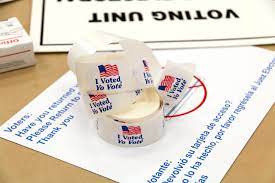Between Aug. 31 and Sept. 11, there were 15 reported incidences to the Department of Campus Safety (DCS) of students being sent to detox and three hospitalizations of students who were declared dangerously intoxicated. This is a significant increase from the nine reports of students sent to detox and only one hospitalization reported to DCS within the same time period in 2013.
According to Sgt. Stephen Banet, crime prevention specialist for DCS, the number of alcohol-related incidents for this time period is high.
“The last couple of years, we’ve had one student going to detox on Sunday night of move-in,” said Banet. “This year, we had two or three that went to detox or the hospital that particular night.”
According to Banet, the increased number of incidents is particularly alarming since they are happening within a time period when parents are usually still on campus.
“There [have] been a lot of off-campus house parties this past week, where police have been called to houses in the neighborhood,” said Banet. “There were also a lot of complaints from the neighbors about students to the university itself rather than the police.”
DCS does not always get notified of neighborhood complaints, according to Banet. Instead, DCS more often gets calls about the status of a student in order to confirm that they are a student.
According to Alan Kent, executive director for the Health and Counseling Center (HCC), there were several instances of preventative education taken both prior to and during the first week of school to try to avoid this situation. Incoming students were required to complete an online education tool called AlcoholEdu, which is a course used by universities nationwide.
If students did not complete the course prior to the start of the school year, holds were placed on their accounts for registration. If they still did not complete it, they were referred to the Office of Student Conduct, according to Kent.
In addition to the online course, students participated in educative discussions led by HYPE student interns. According to Kent, these discussions were focused on health, wellness and behavior, and they will help students be successful in their college experience.
During Discoveries week, students also had student-run small-group discussions featured in an event called Life Outside the Classroom, according to Kent. The discussions covered topics such as alcohol, drug use, sexual assault and discrimination. Booklets were also sent out to parents about the university’s alcohol policy and expectations.
“One would think with all the alcohol education that goes out prior to the students coming in, that it would start to have an effect–I would hope so,” said Banet.











